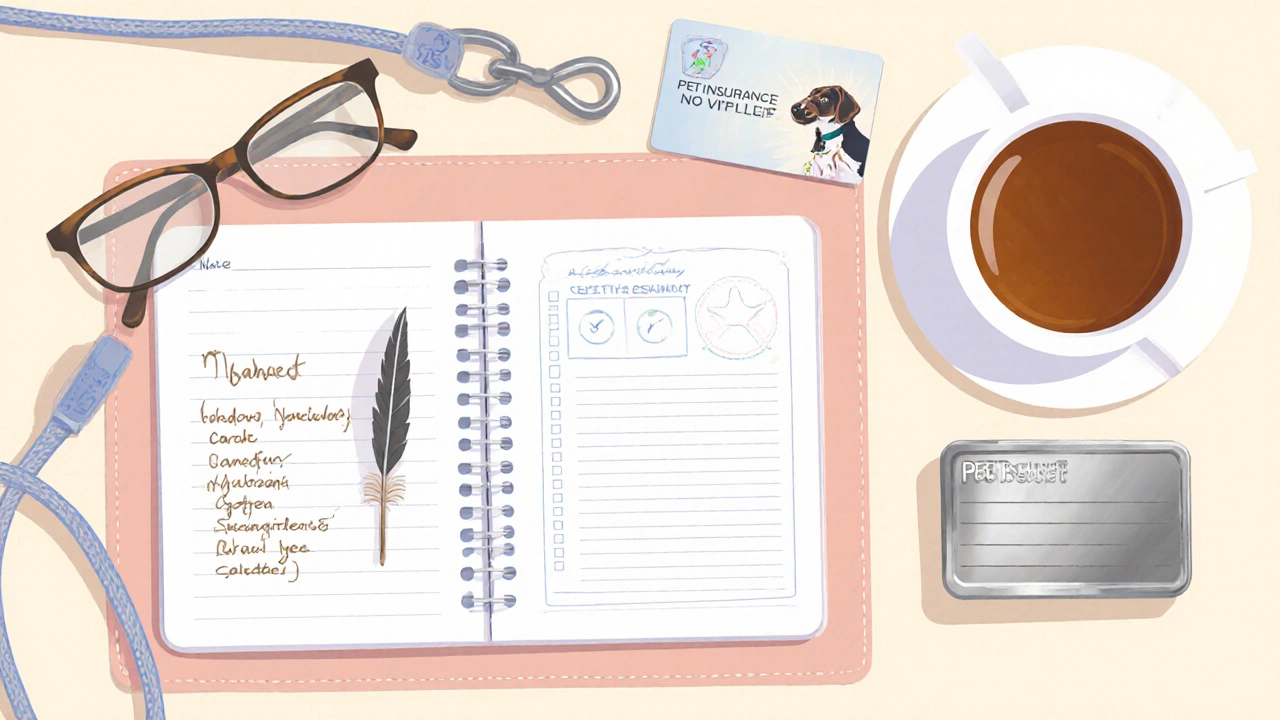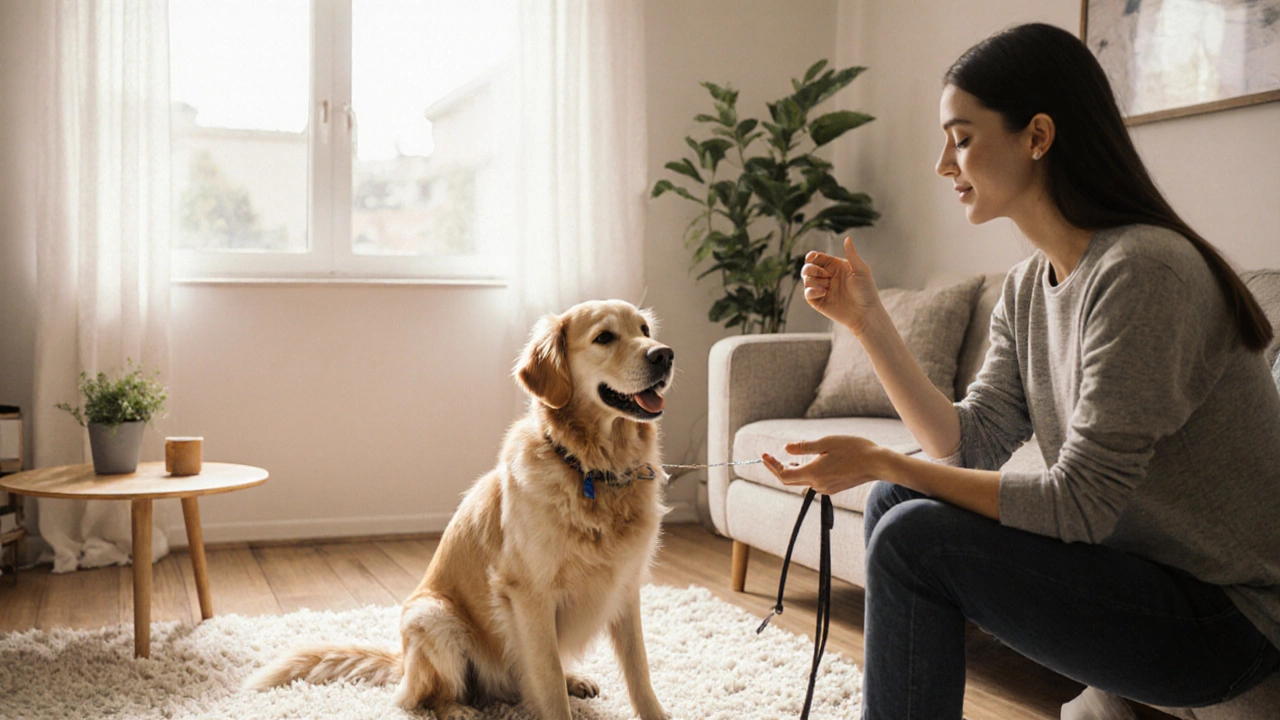Pet Etiquette is the set of polite practices people follow when discussing animals in someone else's home or rental space. When you love your furry companion, the natural instinct is to see how they fit into social plans - a weekend hang‑out, a house‑guest stay, or a short‑term rental. Yet many wonder whether asking, “Can I bring my dog?” sounds demanding or downright rude. The answer depends on timing, phrasing, and a little knowledge of local rental rules. Below you’ll find a practical guide that walks you through the why, how, and what‑if of asking about dogs in another’s house, especially in New Zealand’s rental market.
Why the Question Matters
Hosts and landlords juggle several concerns when a pet enters the picture. First, there’s the risk of property damage - a chewed sofa or a muddy paw print can cost money. Second, allergies are common; a guest with a severe reaction can have their health compromised. Third, in a rental setting, the law and lease terms often dictate whether animals are allowed at all. Ignoring these factors can strain relationships and even lead to a breach of contract. Understanding the stakes helps you approach the request with empathy and respect.
How to Phrase the Request Politely
Choosing the right words can turn a potential faux pas into a smooth conversation. Here are three friendly templates you can adapt:
- "Hey, I’m planning to visit on Saturday. My dog, Bella, is well‑trained and I always keep her on a leash. Would it be okay if she joins me for a few hours?"
- "I’d love to bring my dog along if it won’t cause any inconvenience. I can bring a blanket for her and clean up any mess. Let me know what works for you."
- "I understand if pets aren’t allowed, but I wanted to check just in case. If it’s a problem, I’m happy to make other arrangements."
Notice the pattern: you acknowledge the host’s preferences, offer a solution, and give them an easy out. That tone signals respect and reduces the chance of the request feeling demanding.
Understanding Rental Pet Policies in New Zealand
New Zealand’s Residential Tenancies Act is the primary legislation governing landlord‑tenant relationships, including rules about pets. While the Act doesn’t outright ban pets, it requires any pet‑related clause to be clearly written in the tenancy agreement. Landlords can:
- Allow pets with an additional written agreement.
- Require a Pet Deposit is a refundable fee covering potential damage caused by a pet or increased rent.
- Prohibit pets entirely if they have a legitimate reason, such as past damage or repeated complaints.
In Auckland, the Auckland Council is the local authority that enforces building codes and can intervene in disputes over property misuse, including pet‑related issues. Knowing these legal backbones lets you frame your request with confidence and shows the host you respect the rules.
Preparing Your Dog and Proof of Care
Before you ask, gather a few pieces of documentation that reassure the host:
- Vaccination Records are official logs confirming that a dog has received required immunizations, such as rabies and canine distemper.
- A copy of Pet Insurance is a policy covering veterinary costs and liability in case the dog causes injury or damage (optional but helpful).
- References from previous hosts or a short video showing your dog’s calm behavior around furniture and strangers.
Presenting these items up front tells the host you’ve thought ahead and lowers the perceived risk.

Handling Possible Objections
Even with a polite ask, a host may raise concerns. Here’s how to respond constructively:
- Allergies: Offer to keep the dog in a separate room and use a HEPA air purifier. You can also propose a quick test visit to see if any reaction occurs.
- Noise: Explain that your dog is well‑trained and rarely barks. If they’re still nervous, suggest keeping the dog on a leash indoors and limiting playtime to early hours.
- Potential Damage: Reassure them with a signed pet‑damage agreement and a refundable Pet Deposit. Mention your habit of using a protective mat at the entryway.
Addressing each worry directly demonstrates responsibility and often turns a “maybe not” into a “let’s try.”
Alternatives If the Host Says No
Sometimes the answer stays firm. That’s okay - you can still enjoy your visit without leaving your dog at home:
- Arrange a local dog‑daycare for the duration of your stay.
- Plan daytime walks in nearby parks; Auckland’s Cornwall Park and Mission Bay are dog‑friendly.
- Invite a friend who can watch your dog while you’re inside.
Having a backup plan shows you respect the host’s boundary and keeps the friendship intact.
Quick Checklist Before You Ask
- Review the lease or house rules for any pet clause.
- Gather vaccination records and, if possible, a pet‑insurance summary.
- Prepare a short, courteous script that acknowledges the host’s preferences.
- Plan how you’ll manage allergies, noise, and potential messes.
- Have an alternative arrangement ready in case the answer is no.
Running through this list equips you with confidence and reduces the chance of an awkward moment.

Comparison of Typical Pet Policy Clauses
| Policy Type | Allowed Pets | Fees | Notice Period |
|---|---|---|---|
| Open‑Pet Policy | Any dog or cat, under 25 kg | Standard pet deposit (up to $300) | 30 days written notice |
| Restricted‑Pet Policy | Pre‑approved breeds only | Higher deposit + $20/month pet rent | 60 days written notice + landlord approval |
| No‑Pet Policy | None | None | None - pets prohibited |
Knowing which clause applies to your future rental helps you set realistic expectations before you even knock on the door.
Mini FAQ
Is it ever okay to bring a dog without asking?
No. Even if the dog is well‑behaved, dropping it in unannounced can breach lease terms and offend the host.
What if the host says they’re allergic?
Offer to keep the dog in a separate, well‑ventilated room and use an air purifier. If the allergy is severe, respect the host’s decision and use an alternative care plan.
Can I pay extra rent instead of a pet deposit?
Yes, many landlords accept a higher monthly pet‑rent charge in place of a refundable deposit. Make sure the agreement is written.
Do I need a written agreement for a short‑term visit?
Even for a weekend stay, a brief written note outlining the pet’s behavior, cleaning plan, and any fees protects both parties.
How can I tell if a host’s pet policy is flexible?
Look for language like “subject to landlord approval” or “additional deposit may apply”. If the wording is vague, ask a clarifying question before signing anything.
Keeping these answers handy makes the conversation smoother and shows you’re a considerate guest.
Takeaway
Asking whether you can bring your dog isn’t rude when you do it thoughtfully. Acknowledge the host’s possible concerns, back up your request with proof of care, and respect any final decision. By following the etiquette steps above, you’ll protect your relationship, stay within New Zealand’s rental regulations, and keep your four‑legged friend happy.
